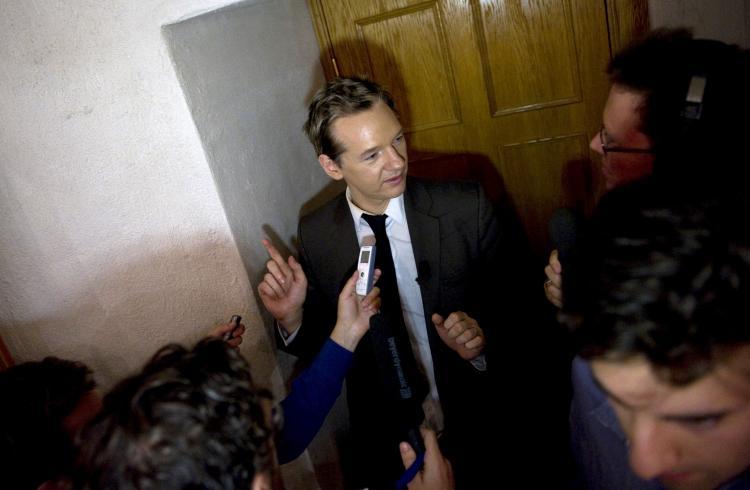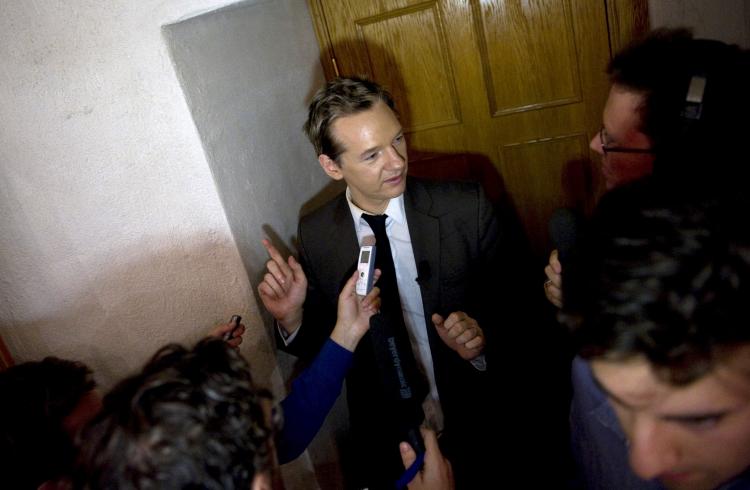International press freedom organization Reporters Without Borders (RSF) said in an open letter on Thursday that it “regrets the incredible irresponsibility” shown by Wikileaks founder Julian Assange in posting the Afghan War Diary 2004 - 2010.
On July 25, online information site Wikileaks posted 76,908 classified U.S. documents on the war in Afghanistan, dated from 2004 to 2010. Wikileaks is expected to release an additional 15,000 documents soon.
Wikileaks has received criticism for posting the documents, as they contained the identities of hundreds of Afghan informants and collaborators with coalition forces in Afghanistan.
RSF acknowledged that Wikileaks “has in the past played a useful role” by exposing violations of human rights and civil liberties. “But revealing the identity of hundreds of people who collaborated with the coalition in Afghanistan is highly dangerous. It would not be hard for the Taliban and other armed groups to use these documents to draw up a list of people for targeting in deadly revenge attacks,” says the letter.
Afghan civilians collaborating with the U.S. and coalition forces are being specifically targeted by the Taliban, in accordance with the latest guidance by Taliban spiritual leader Mullah Muhammad Omar. According to geopolitical intelligence company Stratfor, Omar recently called for an “escalation of violence against Afghan civilians working for or collaborating with the United States.”
By July 28, the kidnappings and killings of two Afghan tribal elders were directly tied to Omar’s new orders, according to International Security Assistance Force (ISAF) spokesman Josef Blotz.
In regards to the Wikileaks documents, Department of State spokesman Philip J. Crowley said on Aug. 2, “[W]e have no doubt that people are scouring these documents, and identifying sources, and we have concerns about their welfare.”
RSF’s letter to Wikileaks added that by releasing such information through Wikileaks, Assange “unintentionally provided supposedly democratic governments with good grounds for putting the Internet under closer surveillance.”
“The precedent you have set leaves all those people throughout the world who risk their freedom and sometimes their lives for the sake of online information even more exposed to reprisals. Such imprudence endangers your own sources and, beyond that, the future of the Internet as an information medium,” said RSF in its letter.
Wikileaks is currently reviewing another 15,000 documents for potentially sensitive information, which it plans to release following the review.
Despite the review, RSF criticized Assange, saying, “indiscriminately publishing 92,000 classified reports reflects a real problem of methodology and, therefore, of credibility. Journalistic work involves the selection of information. The argument with which you defend yourself, namely that Wikileaks is not made up of journalists, is not convincing. Wikileaks is an information outlet and, as such, is subject to the same rules of publishing responsibility as any other media.”
RSF added that while Wikileaks uses its stance of not being made up of journalists as an excuse for not selecting information as would a media, the organization is trying to get source protection that a media is entitled to. RSF said in its letter, “you cannot claim to enjoy the protection of sources while at the same time, when it suits you, denying that you are a news media.”
RSF closes it letter saying “Wikileaks must provide a more detailed explanation of its actions and must not repeat the same mistake. This will mean a new departure and new methods.”
To read the full letter, click here.
To read Wikileaks Afghan War Diary 2004 - 2010, click here.






